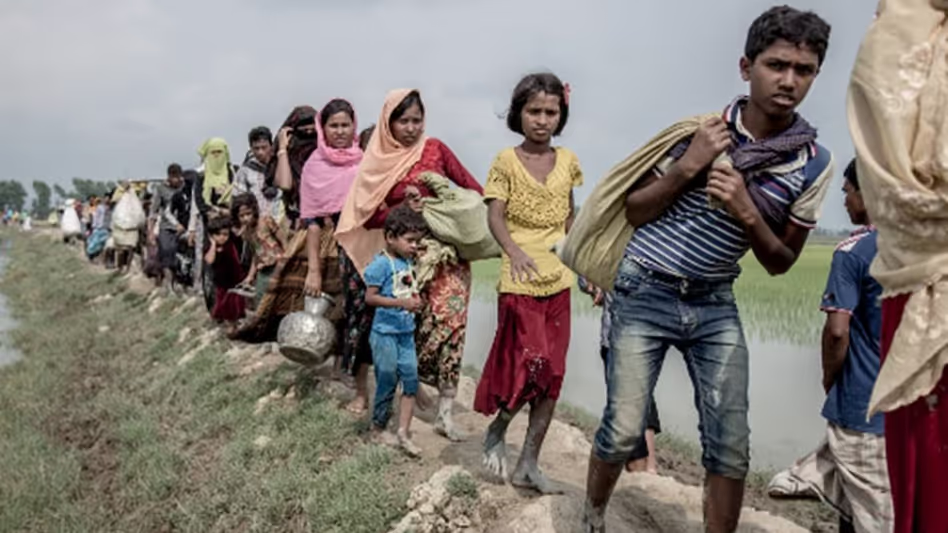Infiltration by the Rohingya community across the Bangladesh border has become a “very serious” issue, according to a Ministry of External Affairs (MEA) official. The statement was made during a recent visit to Tripura, a northeastern state of India that shares a border with Bangladesh. The MEA official emphasized the growing concern over unauthorized crossings, which have raised security and humanitarian issues.
The Rohingya, a stateless Muslim minority from Myanmar, have faced persecution and violence in their home country, leading many to seek refuge in neighboring nations, including India. Tripura, due to its proximity to the Bangladesh border, has been one of the states where increased infiltration has been observed.
Authorities in Tripura and other northeastern states have been on high alert to manage and monitor the situation. The official highlighted the challenges faced by the Indian government in handling the influx, citing concerns over security, law and order, and the strain on local resources. There have been ongoing efforts to enhance border security, including the deployment of additional personnel and the use of advanced surveillance technology.
The MEA’s statement also touched upon the broader implications of the infiltration issue. It underscored the need for a coordinated approach involving multiple agencies, including the Border Security Force (BSF) and local law enforcement, to effectively manage and address the situation. The official called for continued vigilance and cooperation between state and central authorities to prevent illegal crossings and ensure the security of the region.
The issue of Rohingya infiltration has been a contentious topic in Indian politics, with debates around the humanitarian obligations towards refugees and the security risks posed by uncontrolled immigration. The MEA official’s comments in Tripura reflect the ongoing concerns and the complexity of the situation, which requires a delicate balance between compassion and security measures.
This situation continues to be a significant challenge for India, requiring a nuanced and comprehensive response to address both immediate and long-term concerns.

